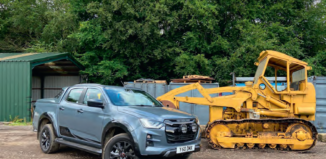Recent tests carried out by international charity Global NCAP, shockingly revealed that some of India’s most important and best-selling cars are unable to meet the UN’s minimum safety requirements.
The most popular Indian cars, which included the Suzuki-Maruti Alto 800, the Tata Nano, Ford Figo, Hyundai i10 and Volkswagen Polo all showed increased risk of injury during a collision, and were deemed unsafe by the charity, which stated: ‘Poor structural integrity and the absence of airbags are putting the lives of Indian consumers at risk.’
But how have these findings impacted on the Indian car industry?
In response to the report, many carmakers in India have dismissed the findings as unfair, claiming that the study didn’t take Indian environments or requirements into account. The Society of Indian Automobile Manufacturers (SIAM) argued that Indian cars meet the minimum required standards in the markets for which they are made, and that the conditions of the assessments did not take into account Indian driving conditions.
The tests were conducted in Germany at speeds of 56 km/h to 64 km/h on the entry-level variants of the Maruti Alto 800, Tata Nano, Ford Figo, Hyundai i10 and the Volkswagen Polo bought from Indian showrooms. Global NCAP gave them a zero-star rating, and suggested that these cars pose a high risk of life-threatening injuries in road accidents. But SIAM fought back by accusing Global NCAP of trying to scare Indian consumers. Director-General Vishnu Mathur claimed that the testing was based on protocols which are not valid for India and was conducted without using any scientific data on accident analysis in India.
“All our cars sold in India are absolutely safe and meet the requirements of the standards laid down by the government. These standards are based on international norms adapted to the Indian conditions of road and traffic,” said Mathur. The government also has a “clear roadmap” to set up an Indian NCAP (new car assessment programme) as soon the crash-testing facility of the National Automotive Testing and R&D Infrastructure Project goes on stream, he said.
RC Bhargava, chairman of Maruti Suzuki India, said the safety standards of the company’s cars were more than adequate for the Indian driving conditions and also met the rules of the markets to where they are exported. “Different organisations have the right to do what they want”, he stated, in response to the NCAP study.
While agreeing that the safety standards in India have to improve, he said: “But before one arrives at the judgment, one needs to look at the Indian driving condition. What is the average speed, how many times the airbag is deployed and what is the purchasing power?”
Some industry executives questioned the rationale of crash-testing entry-level variants at speeds which are higher than European crash-testing standards seen in typical UK cars. “They crashed Indian vehicles at 64 kmph, which is higher than even European crash testing speeds of 56 kmph. The Indian average speed is 46 kmph,” said a senior auto industry official. However it is somewhat inescapable that Indian manufacturing standards simply do not meet those of the UN – so what does this mean for the future of automotive relationships between India and the UN?


